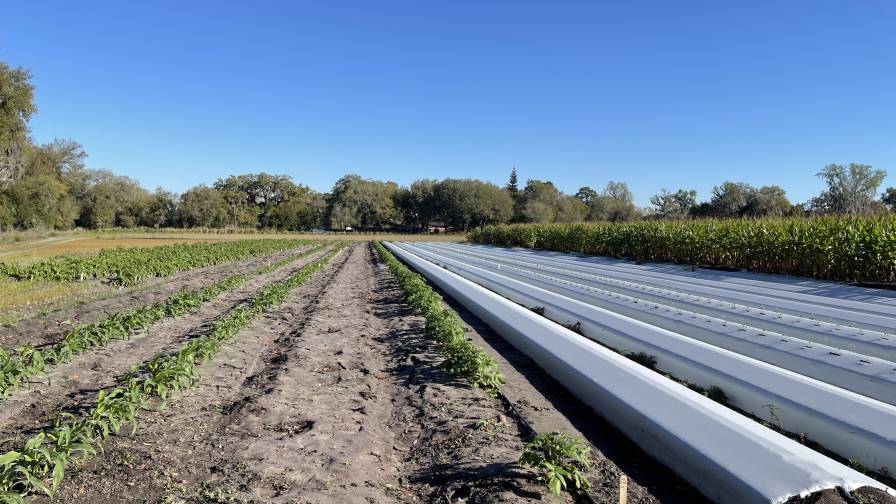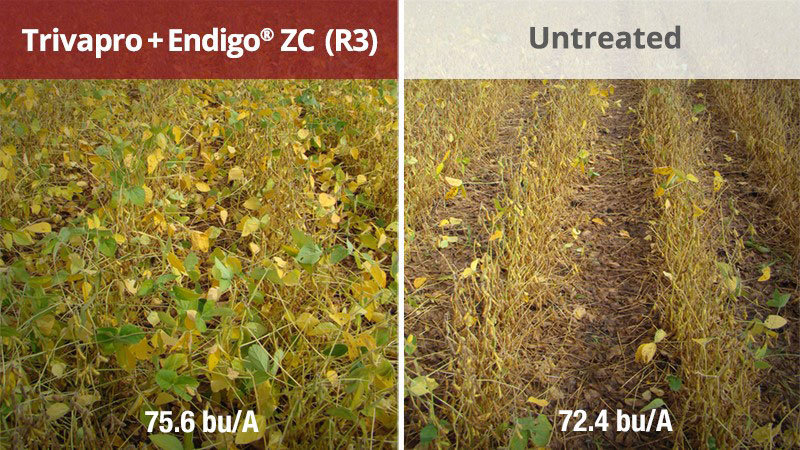WSSA Announces 2014 Annual Awards Winners
This week the Weed Science Society of America (WSSA) honored nearly three dozen individuals for their outstanding contributions to the field of weed science. The awards were presented during the organization’s annual meeting, held this year in Vancouver, BC.
“We’re proud to honor true innovators who are making a significant mark on our profession through their research, teaching, publishing and outreach,” said Jim Kells, Ph.D., president of WSSA.
WSSA presented the Fellow award – its highest recognition – to:
- James V. Anderson, Ph.D., a researcher with the USDA’s Agricultural Research Service (ARS). Anderson is best known for developing genomics programs for perennial weeds. His research accomplishments have been documented in 90 published articles and 128 abstracts. At ARS, Anderson created guidelines for scientists working with invasive plants. He also developed an Interagency Research Coordination Workshop to address pest invasions, fire-prone environments and restoration. His long-standing involvement with WSSA includes serving on the executive committee.
- Thomas C. Mueller, Ph.D., a professor of plant sciences at the University of Tennessee. Mueller is known for two primary research areas: the environmental fate of herbicides in soils and herbicide-resistant weeds. He has published more than 100 refereed articles and has served on an EPA Scientific Advisory Board. He is former president of the Southern Weed Science Society. Mueller has served WSSA as a member of the executive committee and as associate editor for Weed Science and Weed Technology.
- Peter H. Sikkema, Ph.D., a professor at the University of Guelph. Sikkema focuses on weed management in field crops. He has published 182 peer-reviewed manuscripts and authored or coauthored 86 oral presentations and 97 poster presentations for scientific conferences. He has served on the boards of WSSA, the Canadian Weed Science Society and the North Central Weed Science Society. He also has served as president of the Canadian Weed Science Society. Sikkema has received numerous awards for his contributions to teaching and to the field of weed science.
Outstanding Extension Award
Russell R. Hahn, Ph.D., a member of the Department of Crop and Soil Sciences at Cornell University. Hahn is responsible for field crop weed science extension and applied research in New York State. He has been recognized for his extension outreach efforts by the New York State Association of County Agricultural Agents. He also received the 2013 College of Agriculture and Life Sciences’ Research and Extension Award for Outstanding Accomplishments in Extension/Outreach. Hahn is a past president of the Northeast Weed Science Society and is a WSSA Fellow.
Outstanding Teacher Award
Peter Dotray, Ph.D., a professor and extension weed specialist with three organizations: Texas Tech University, Texas A&M AgriLife Research and Texas A&M AgriLife Extension Service – Lubbock. Dotray teaches graduate and undergraduate courses, conducts weed control research in crops and serves as an extension weed specialist for 20 counties on the Texas Southern High Plains. He also has served as an advisor for 33 graduate students. He has given 84 presentations at professional meetings and conducted 631 seminars and presentations at grower meetings. He also has authored or coauthored 573 abstracts and proceedings, articles and book chapters.
Outstanding Graduate Student Award
Erin Haramoto, a Ph.D. candidate at Michigan State University. Haramoto’s research focuses on weed population dynamics, nitrogen loss and profitability in strip-tilled vegetable systems. She has authored or co-authored 10 publications in refereed journals and has presented her research at 10 conferences. She also has given many extension talks during field days and grower meetings. Haramoto has worked as a teaching assistant and as a guest lecturer on weed management. She now is helping to organize an annual Plant Science Graduate Student Research Symposium.
Outstanding Research Award
K. Neil Harker, Ph.D., part of the Agriculture and Agri-Food Canada team at Lacombe, AB. Harker has studied the impact of herbicides on weeds and crop yields, weed biology and the impact of adjuvants on herbicide activity. His current research focuses on integrated weed management, competitive crop stands, production and sustainability of canola and barley, weed interactions with insects, and cropping system impacts on soil microorganisms. Harker has published 166 refereed journal articles and 12 book chapters. He is a WSSA Fellow.
Outstanding Early Career Weed Scientist
Bradley D. Hanson, Ph.D., a cooperative extension specialist at the University of California at Davis. His statewide research and extension program focuses on weed management in orchards and vineyards, management and physiology of herbicide-resistant weeds, and methyl bromide alternative soil fumigants in nursery and orchard systems. While earning his M.S. and Ph.D. degrees, Hanson researched herbicidal weed control and crop safety in dryland cereal/legume farming systems and the risks of gene flow from herbicide-resistant wheat.
Outstanding Industry Award
Carol Somody, Ph.D., a pesticide stewardship and safety education manager at Syngenta. Somody is responsible for programs in pesticide stewardship and safety education, integrated pest management and resistance management. She has served on the WSSA Public Awareness Committee since its formation in 2007, most recently as committee chair. She currently co-leads the National Stakeholder Team for Pesticide Safety Education Program Funding. She also is industry coordinator of the Pesticide Environmental Stewardship (PES) website and serves on the Board of the Pesticide Safety Education Program Improvement and Modernization Initiative (PSEP IMI).
Outstanding Paper Award
- John Gaskin, Mark Schwardãnder, Hariet L. Hinz, Livy Williams III, Esther Gerber, Brian G. Rector and Dao Yuan Zhang for their paper in Invasive Plant Science and Management: “Genetic Identity and Diversity of Perennial Pepperweed (Lepidium latifolium) in its Native and Invaded Ranges.” Gaskin, Livy and Rector are with the USDA’s Agricultural Research Service. Schwarzländer teaches at the University of Idaho. Hinz and Gerger work with CABI in Switzerland. Zhang is a professor at the Chinese Academy of Sciences.
- Sam E. Wortman, Adam S. Davis, Brian J. Schutte, John L. Lindquist, John Cardina, Joel Felix, Christy L. Sprague, J. Anita Dille, Analiza H.M. Ramirez, Graig Reicks and Sharon A. Clay for their paper in Weed Science: “Local Conditions, Not Regional Gradients, Drive Demographic Variation of Giant Ragweed (Ambrosia trifida) and Common Sunflower (Helianthus annuus) Across Northern U.S. Maize Belt.” Wortman teaches at the University of Illinois. Davis is with the USDA’s Agricultural Research Service in Urbana, IL. Schutte teaches at New Mexico State University. Lindquist teaches at the University of Nebraska-Lincoln. Cardina teaches at Ohio State University. Felix teaches at Oregon State University. Sprague teaches and serves as extension specialist at Michigan State University. Dill teaches at Kansas State University. Ramirez works at the Monsanto Scott Learning Center. Reicks is a research associate and Clay is a professor, both at South Dakota State University.
- Rodgrigo Werle, Mark L. Bernards, Loren J. Giesler and John L. Lindquist for their paper in Weed Technology: “Influence of Two Herbicides on Soybean Cyst Nematode (Heterodera glycines) Reproduction on Henbit (Lamium amplexicaule) Roots.” Werle is a Ph.D. student at the University of Nebraska-Lincoln, where Giesler and Lindquist both teach. Bernards teaches at Western Illinois University.
Outstanding Reviewer Awards (WSSA honored the following individuals for their review of scientific papers)
- Prashant Jha, Ph.D., an assistant professor of weed science at Montana State University’s Southern Agricultural Research Center. His research on Integrated Weed Management strategies for dryland and irrigated cropping systems emphasizes weed biology and ecophysiology, weed seed bank dynamics, molecular mechanisms of herbicide resistance in weeds, and development of alternative herbicide systems and integrated tools to combat herbicide resistance.
- Dale Shaner, Ph.D., an industry consultant. Shaner previously worked for the USDA’s Agricultural Research Service and in private industry. He was instrumental in discovering the mode of action of the imidazolinones. He has been an active voice in herbicide resistance management for ALS inhibitors and glyphosate – helping to establish the Herbicide Resistance Action Committee, which he also chaired. Shaner is a Fellow, former board member and former president of WSSA.
SOURCE: Weed Science Society Of America release.






